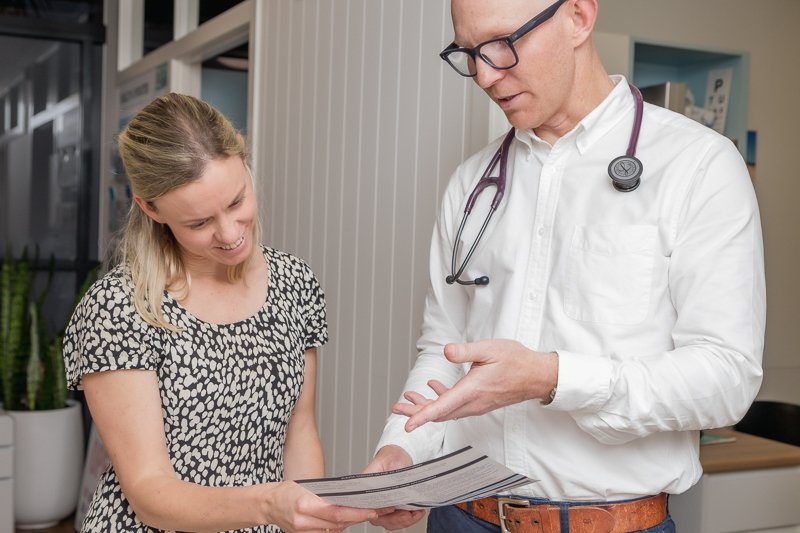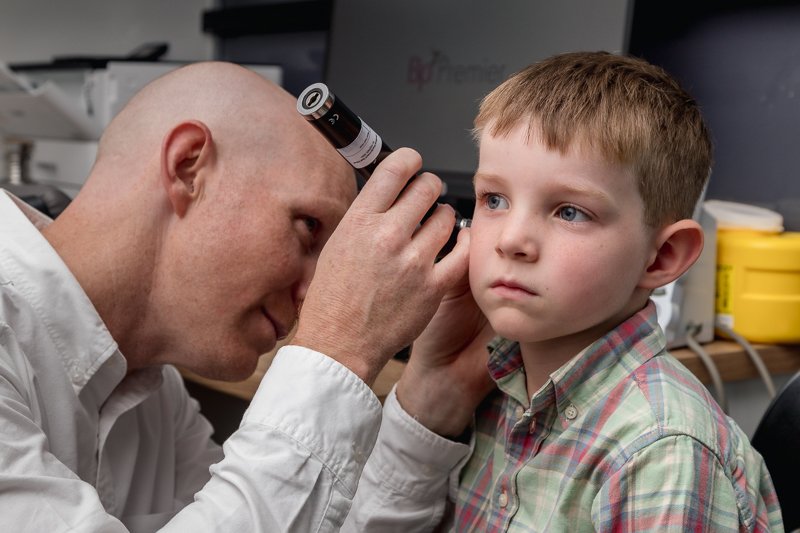Pfizer COVID-19 Vaccine: What To Know
The first – and perhaps most important – thing to know about the Pfizer vaccine is that it’s available now at Peregian Family Medical Centre for patients aged 12 and above.
If that’s all you needed to know, then you can book here or call us on 5471 2100. We are currently running Saturday clinics for our Pfizer roll out.
If you’ve got questions about the Pfizer vaccine, then read on and we’ll do our best to answer them.
Do I really need to get a COVID jab right now?
Yes. We’ve enjoyed very low rates of COVID in Queensland but that could change at any moment. The virus will eventually make its way here again and our best way of limiting the damage it causes is to get vaccinated now so that as many of us as possible are fully protected before it arrives.
Remember, reaching full immunity is a 5-8 week process, involving 2 doses spread 3-6 weeks apart then another 2 weeks after the final dose for your body to develop its full defences to COVID-19.
Right now, it’s easy to get an appointment and there’s plenty of vaccine stock available. If you wait until there’s an outbreak then not only will you and your loved ones be more vulnerable to the virus but you’ll probably also find it harder to get an appointment.
So don’t wait. Book your vaccination here or call us on 5471 2100 today
How does the Pfizer vaccine work?
The Pfizer vaccine is an mRNA vaccine, a type of vaccine that has been in development for nearly 20 years.
The ‘m’ stands for messenger while RNA is a genetic code that teaches your cells how to fight against the COVID-19 infection. The Pfizer jab is a bit like a postie that delivers a message to your cells containing a game plan of how to beat COVID.
Importantly, the Pfizer vaccine does not:
Change your DNA in any way
Contain any live virus – you can’t catch COVID from the vaccine
Hang around in your body – your cells quickly break it down once they’ve got the message.
https://www.youtube.com/watch?v=w4sUuFBEo2g
How effective is the Pfizer vaccine?
The vaccine’s role is not necessarily to stop you from catching COVID but rather to keep you:
Alive
Out of intensive care
Out of hospital.
While the percentages vary a little from one study to another, the overall message confirmed by many, many studies is that the Pfizer vaccine provides a strong level of protection against COVID-19, as do other vaccines like AZ or Moderna.
Who is eligible for the Pfizer vaccine in Queensland?
If you’re over 12, you can have a Pfizer vaccine. If you’re over 60, you’re also eligible for the AstraZeneca vaccine.
You should not have the Pfizer vaccine if you’ve had:
A severe allergic reaction (anaphylaxis) to a previous dose of the vaccine
Anaphylaxis after exposure to any component of the vaccine, including polyethylene glycol (PEG)
Myocarditis and/or pericarditis attributed to a previous dose of the vaccine
Any other serious adverse event attributed to a previous dose of the vaccine.
What are the side effects of the Pfizer vaccine?
Like every other medicine or vaccine, the Pfizer jab has some side effects, though they’re mostly mild.
After your jab, you may experience:
Injection site pain or swelling
Tiredness
Headache
Muscle or joint pain
Fever and chills.
In rare cases, the Pfizer vaccine may cause inflammation of the heart (myocarditis) or inflammation of the membrane around the heart (pericarditis). These conditions are uncommon and most people who do develop them only experience mild symptoms.
You should call your GP or go to hospital immediately if you’ve recently had the Pfizer vaccination and are experiencing:
Chest pain
Pressure or discomfort in the chest
Irregular, skipped heartbeats or ‘fluttering’
Fainting
Shortness of breath
Pain when breathing.
For every one million American men who received the Pfizer vaccine, just 10 developed myocarditis or pericarditis after their first dose while 67 out of a million developed it after their second dose.
As you can see, the risk of developing myocarditis or pericarditis is very low. The risks are far outweighed by the benefits of increased protection against COVID-19.
When do I get the second dose and will the side effects be worse?
The second Pfizer dose is usually given 3-6 weeks after the first one.
AusVax data shows that side effects like fever, headache, fatigue and joint pain are a little more common after the second dose but they’re generally mild and short-lived. Just under 1% of people needed medical attention after their first Pfizer dose and just over 1% needed medical attention after their second dose.
I’m still not sure about getting a COVID vaccination
You’ve probably had vaccinations before, either to travel overseas (ah, those were the days!), to protect yourself from flu each winter or as part of Australia’s childhood vaccination program.
You probably felt OK about those vaccines because they’d been around for a while and you felt sure they’d been developed carefully and safely.
You may be less sure about the COVID jab. It was developed so quickly, wasn’t it? Surely they must have cut some corners?
Rest assured, they didn’t. They went through the usual rigorous processes of laboratory research, clinical trials and publication of results in peer-reviewed journals. Each country’s drug regulator (the Therapeutic Goods Administration in Australia) then assessed the vaccinations just as they assess every other drug and approved them for use.
Usually medical research is a bit of a stop-start experience. You make a bit of progress, publish your results then apply for another grant. The work pauses until more funding is available then ramps up again until you have to get more funding for the next stage and so on and so on until, finally, a viable product is created.
Development of the COVID-19 vaccines has been quicker than usual due to the priority given by governments, the funding poured into the work and incredible levels of cooperation between researchers around the world.
Scientists also had a head start on the pandemic. It was very likely that the world would experience a coronavirus pandemic at some point so they had been working on a suitable
vaccine since the coronavirus epidemics of SARS in 2002 and MERS in 2012. They’d already done a great deal of the groundwork for the COVID-19 vaccinations and were able to build on it for this particular type of coronavirus.
The result is that, in a little over a year of the pandemic reaching our shores, we’re able to access a vaccine to protect ourselves and our loved ones. That’s something to be incredibly grateful for.
Get your Pfizer vaccine at Peregian Family Medical Centre
If you’ve still got questions about the Pfizer vaccine, please make an appointment with your GP. We’d love to talk over your concerns with you and answer your questions.
If you’re ready to get your jab, then book your Pfizer vaccine today.
Disclaimer
All information is general in nature. Patients should consider their own personal circumstances and seek a second opinion.






